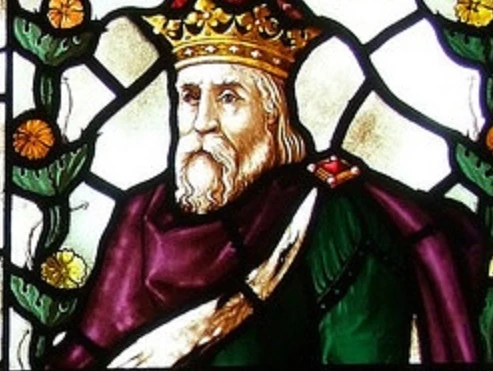A King Can’t Run

Sigeberht ruled East Anglia from 629 to 634. But in 634, Sigeberht abdicated in favour of his co-ruler Ecgric and entered a monastery. This was remarkable in itself: Sigeberht was the first Anglo-Saxon king to abandon power for the religious life. It’s an indication of how deeply the new religion had penetrated the warrior class even during the first generation of converts. Sigeberht was completely sincere in his renunciation of the life of the warrior, although it seems that not all his people were convinced. For at some point after he entered the monastery, King Penda came calling with his Mercian army. King Ecgric fell back before the advancing Mercians but Penda pursued them. Remembering Sigeberht’s pre-abdication abilities as a warrior and battle leader, Ecgric sent messengers to the once king, asking him to leave the monastery and join him in defending the realm. But Sigeberht refused, reiterating the final nature of his renunciation of the world; he would bear arms no longer.
With the situation desperate, Ecgric refused to accept Sigeberht’s answer and had him dragged from his monastery. But even when forced from the monastic life, Sigeberht refused to resume the life of war. He was a monk now and would no longer bear arms nor trade in lives. Ecgric tried to delay, withdrawing into the marshes, but his army was tracked down by Penda’s scouts. The East Anglians had no choice but to give battle.
Even at the end, Sigeberht clove to his vows and refused to take up weapons, wielding only a staff in his own defence.
To no avail. The Mercians cut down the East Anglians, killing Ecgric and Sigeberht, and significantly reducing East Anglian power.
However, it turned out that reduction was not sufficient for Penda for when their successor, King Anna, looked on course to restore East Anglian power Penda invaded again, killing another king.
Sigeberht,
who ruled East Anglia from 629 to 634. But in 634, Sigeberht abdicated in
favour of his co-ruler Ecgric and entered a monastery. This was remarkable in
itself: Sigeberht was the first Anglo-Saxon king to abandon power for the
religious life. It’s an indication of how deeply the new religion had
penetrated the warrior class even during the first generation of converts.
Sigeberht was completely sincere in his renunciation of the life of the
warrior, although it seems that not all his people were convinced. For at some
point after he entered the monastery, King Penda came calling with his Mercian
army. King Ecgric fell back before the advancing Mercians but Penda pursued
them. Remembering Sigeberht’s pre-abdication abilities as a warrior and battle
leader, Ecgric sent messengers to the once king, asking him to leave the
monastery and join him in defending the realm. But Sigeberht refused,
reiterating the final nature of his renunciation of the world; he would bear
arms no longer. With the situation desperate, Ecgric
refused to accept Sigeberht’s answer and had him dragged from his monastery.
But even when forced from the monastic life, Sigeberht refused to resume the
life of war. He was a monk now and would no longer bear arms nor trade in
lives. Ecgric tried to delay, withdrawing into the marshes, but his army was
tracked down by Penda’s scouts. The East Anglians had no choice but to give
battle. Even at the end, Sigeberht clove to
his vows and refused to take up weapons, wielding only a staff in his own
defence. To no avail. The Mercians cut down
the East Anglians, killing Ecgric and Sigeberht, and significantly reducing
East Anglian power. However, it turned out that
reduction was not sufficient for Penda for when their successor, King Anna,
looked on course to restore East Anglian power Penda invaded again, killing
another king.
0 Comments